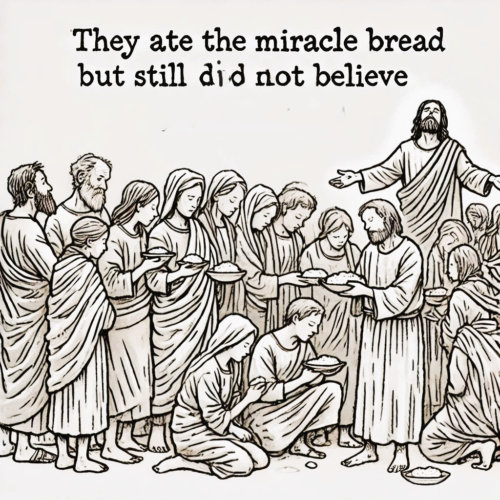Miracles In the Bible: What Purposes Do They Serve?
Picture the scene: A storm rages across the Sea of Galilee. Seasoned fishermen fear for their lives as waves crash over their boat. Then, with three simple words—”Peace, be still”—everything changes. The wind dies. The waves calm. And the disciples stare in wonder at the man who commands even the wind and waves.
But why? Why did Jesus perform such extraordinary acts? The answer reaches far deeper than mere supernatural spectacle. As we explore these divine signs, we begin to see how they speak just as powerfully today as they did two thousand years ago—about Christ’s authority, His character, and His redemptive mission.
The Nature of Biblical Miracles
To properly understand miracles, we must first distinguish between God’s ordinary and extraordinary providence. In His ordinary providence, God upholds and governs all things according to natural laws He established at creation. However, in His extraordinary providence—what we typically call miracles—God works in ways that transcend these ordinary patterns. This distinction is crucial because it helps us understand miracles aren’t violations of natural law but rather, demonstrations of God’s sovereign authority over His creation.
The clustering of miracles around specific periods in redemptive history is particularly noteworthy. Rather than appearing randomly throughout Scripture, miracles tend to concentrate around crucial moments of revelation and redemptive history: the Exodus, the ministries of Elijah and Elisha, and supremely, the ministry of Christ and the apostolic age. This pattern suggests miracles serve specific purposes in God’s redemptive plan rather than existing merely for wonder or validation of individual faith.
Categories of Miracles in the Bible
Scripture presents several distinct categories of miraculous events. The creation account itself stands as the fundamental miracle, establishing God’s absolute power over nature. Signs of divine authority, such as Moses’ confrontation with Pharaoh’s magicians or Elijah’s contest on Mount Carmel, authenticated God’s messengers. Redemptive miracles, like the Exodus or various healings, demonstrated God’s saving power. Judgement miracles, such as the flood or the plagues of Egypt, revealed divine justice. Above all stands the resurrection of Christ—the miracle that serves as the cornerstone of our faith and the guarantee of our hope.
The Purpose of Biblical Miracles
Miracles in Scripture consistently serve greater purposes than merely amazing observers or relieving suffering, though they often accomplished these ends. Their primary functions included authenticating God’s messengers, revealing His character and attributes, and advancing His redemptive plan. When Moses performed miracles before Pharaoh, these signs demonstrated not only Moses’ authority but also God’s sovereignty over creation and His purpose of redemption for His people.
In the New Testament, miracles are deliberately called “signs” (σημεῖα, semeia) because they point beyond themselves to profound spiritual truths about Christ’s identity and authority. Each miracle reveals specific aspects of Jesus’s divine nature and redemptive mission. They demonstrate Christ’s:
Authority over creation itself. When He calmed the raging storm on the Sea of Galilee with mere words, “Peace, be still,” the disciples were struck with awe, asking, “What manner of man is this, that even the wind and the sea obey him?” This sign revealed Jesus as the divine Creator who maintains sovereign power over nature.
Authority over sin. When the paralytic was lowered through the roof, Jesus first pronounced, “Your sins are forgiven,” before commanding him to walk. This sequence deliberately connected physical healing with spiritual authority, proving He had “power on earth to forgive sins” – a power belonging to God alone.
Authority over resources. Jesus’s multiplication of loaves and fish for the five thousand revealed this authority. This sign echoed God’s provision of manna in the wilderness and pointed to Jesus as the true bread from heaven who would give His life for the world.
Authority over sickness: His countless healings—of lepers, the blind, the lame—demonstrated His authority over sickness and His deep compassion for human suffering. These weren’t mere displays of power but revelations of God’s heart to restore and make whole what sin had broken.
Authority over demonic powers: Christ’s exorcisms proved His absolute authority over demons. When He commanded unclean spirits, they fled in terror, recognising and submitting to His superior authority. These signs demonstrated God’s kingdom had truly arrived in power to overthrow the dominion of darkness.
Authority over death: Finally, and most significantly, Jesus demonstrated authority over death itself. In raising Lazarus after four days in the tomb, He proved His power over humanity’s greatest enemy. This culminating sign pointed toward His own resurrection and His promise of eternal life to all who believe.
These miracles weren’t random displays of supernatural power but carefully chosen signs that revealed Christ’s identity and mission. Each miracle served to authenticate Jesus as the divine Son of God while also demonstrating the comprehensive scope of His redemptive work—addressing both physical and spiritual needs, both temporal suffering and eternal consequences of sin.
Common Objections and Responses
Modern scepticism toward miracles often stems from philosophical naturalism rather than scientific evidence. David Hume’s famous arguments against miracles, while influential, ultimately beg the question by assuming the impossibility of what they claim to disprove. The real issue isn’t whether miracles are possible—if an all-powerful God exists, they certainly are—but whether they’ve actually occurred. The historical evidence for biblical miracles, particularly the resurrection of Christ, stands up to honest scrutiny.
Miracles and God’s Sovereignty
Understanding miracles requires recognising God’s absolute sovereignty over creation. The same God who established natural laws can work beyond them for His purposes. Indeed, the regularity of natural law itself depends on God’s faithful sustaining work. From this perspective, even the ordinary operations of nature are miraculous; we simply fail to recognize them as such due to their regularity.
- Miracles Today: The completion of special revelation in Scripture has significant implications for how we view miracles today. The concentrated periods of miraculous activity in Scripture served specific purposes in redemptive history, particularly in authenticating God’s messengers and His revelation. With the completion of Scripture, this authenticating purpose is fulfilled. While God certainly can and does act sovereignly today, we should not expect the same concentration of miraculous signs that accompanied new revelation.
- Practical Applications: This understanding of biblical miracles should deepen our faith and sharpen our reading of Scripture. When we encounter miracle accounts, we should look beyond the extraordinary events themselves to discern their redemptive significance. These records should strengthen our confidence in God’s sovereign power and His faithfulness to His purposes.
Conclusion:
Consider again that storm-tossed boat. The disciples’ question echoes through history: “What manner of man is this?” Every miracle points us toward the answer. These weren’t mere historical events to astonish first-century witnesses; they were signs carefully preserved in Scripture to reveal Christ’s comprehensive authority—over nature, sin, sickness, spirits, and death itself. But perhaps the greatest miracle isn’t found in the dramatic displays of power over wind and waves, or even in the raising of the dead. It’s found in the transformed lives of those who encounter Jesus through these signs and recognise Him for who He truly is—the divine Son of God, wielding absolute authority yet moved with compassion for His people. The same Jesus who calmed the storm still speaks peace to troubled hearts. The same power that raised Lazarus still brings spiritual life to dead souls. And the same authority that commanded even death to release its grip still offers eternal life to all who believe. The question isn’t just “Why did Jesus perform miracles?” but “How will we respond to what these signs reveal?”
Miracles in the Bible: Related FAQs
We read of Jesus feeding thousands—if that really happened, shouldn’t all of them have believed in Him? John’s Gospel actually addresses this directly, showing that many who ate the miraculous bread still failed to recognize Jesus as the true bread from heaven. This demonstrates that even the most spectacular miracles don’t automatically generate saving faith—as Jesus taught in the parable of the rich man and Lazarus, saying if they don’t believe Moses and the Prophets, they won’t believe even if someone rises from the dead. The incident reveals that faith is not merely about witnessing supernatural events but about having eyes to see their true significance through the Spirit’s work.
- Why don’t we see the same kinds of miracles today? Biblical miracles clustered around specific periods of redemptive history, particularly when God was providing new revelation through appointed messengers like Moses, Elijah, and supremely, Jesus and His apostles. With the completion of Scripture and the establishment of Christ’s church, we don’t need the same authenticating signs, though God certainly still works powerfully today. The focus has shifted from authenticating new revelation to spreading the message of Christ through the Spirit-empowered preaching of God’s completed Word.
- Did Old Testament miracles serve the same purpose as Jesus’s miracles? While Old Testament miracles demonstrated God’s power and authenticated His messengers, Jesus’s miracles uniquely revealed Him as the promised Messiah and inaugurated the kingdom of God. Old Testament miracles often focused on delivering Israel and judging their enemies, pointing forward to a greater deliverance to come. Jesus’s miracles fulfilled these patterns while revealing His identity as the divine Son who had authority to forgive sins and grant eternal life.
Why didn’t Jesus perform miracles in some places? The Gospels record that Jesus did few miracles in places of unbelief, not because He lacked power, but because miracles weren’t meant to force faith on the unwilling. This pattern reveals that miracles were intended to confirm and strengthen faith in those who were receptive, not to overwhelm skeptics with raw displays of power. It also shows that God’s work often requires a response of faith from those who witness it.
- What’s the difference between biblical miracles and claims of modern miracles? Bible miracles were public, verifiable events that even enemies couldn’t deny, serving specific purposes in God’s redemptive plan and authenticating His messengers. They demonstrated authority over creation itself and were often prophesied beforehand. While God certainly still works powerfully today, biblical miracles were unique in their scale, authority, and redemptive-historical purpose, directly connected to Christ’s person and work.
- How do we answer skeptics who say miracles break natural laws and therefore can’t be trusted? Natural laws describe how God normally sustains His creation, not independent forces that bind God Himself. Just as a programmer can intervene in their program without breaking its code, God can act in His creation without violating the laws He established. Far from showing miracles are impossible, the existence of natural laws actually points to a Law-Giver who has authority over them—making miracles entirely plausible when this sovereign God chooses to act in extraordinary ways for His purposes.
- If miracles were plausible shouldn’t we be seeing some of them today as well? The question assumes miracles should be equally distributed across history, but Scripture shows they clustered around key moments in redemptive history, particularly the authentication of God’s messengers and new revelation. With Scripture complete and Christ’s resurrection accomplished, we don’t need the same authenticating signs today. The greatest miracle—spiritual regeneration—continues daily as God transforms lives through the gospel, while physical miracles may still occur according to God’s sovereign will, though not with the same frequency or redemptive-historical significance as biblical miracles.
We read of Jesus feeding thousands—if that really happened, shouldn’t all of them have believed in Him? John’s Gospel actually addresses this directly, showing that many who ate the miraculous bread still failed to recognize Jesus as the true bread from heaven. This demonstrates that even the most spectacular miracles don’t automatically generate saving faith—as Jesus taught in the parable of the rich man and Lazarus, saying if they don’t believe Moses and the Prophets, they won’t believe even if someone rises from the dead. The incident reveals that faith is not merely about witnessing supernatural events but about having eyes to see their true significance through the Spirit’s work.
Miracles in the Bible: Our Related Posts
Editor’s Pick

Why Do Some Respond to God’s Call While Others Don’t?
THE REFORMED VIEW ON OUTWARD AND INWARD CALLS EXPLAINED Picture this: Two neighbours attend the same church service. They hear [...]

Does Ocean Salt Content Prove a Young Earth?
A COMPELLING LOOK AT MARINE CHEMISTRY AND EARTH’S TIMELINE The Salt Question That Challenges Deep Time: If Earth’s oceans have [...]
Noah’s Flood: Where Did All the Water Come From? And Go?
The question hits every Bible-believing Christian at some point: “If Noah’s flood covered the whole earth, where did all that [...]

No Marriage in Heaven? What Does Mark 12:25 Mean?
“Will I see my spouse in heaven? Will we still be married?” These questions pierce the heart of every Christian [...]

The Terror of Meeting God: What Isaiah 6 Reveals About Divine Holiness
WHEN ‘WOE IS ME’ IS THE ONLY PROPER RESPONSE TO A GLIMPSE OF GOD Picture this: You’re a prophet of [...]

Is the Holy Spirit Present in Unbelievers? The Biblical Answer
Can someone who doesn’t believe in Jesus Christ have the Holy Spirit living inside them? This question strikes at the [...]

The Gap Theory Exposed: Why Embrace a Young Earth?
The Gap Theory proposes there’s a vast time gap—millions or billions of years—between Genesis 1:1 (“In the beginning God created [...]

Rethinking Sickle Cell Anaemia: A Case for Intelligent Design
Sickle cell anaemia presents what many consider evolution’s strongest card—a genetic condition that causes suffering yet provides protection against malaria. [...]

‘Bad’ Design: Flaw in Nature Or Flaw in Our Perspective?
When the Eiffel Tower was first proposed, critics called it a monstrous eyesore that would ruin Paris forever. Today, it’s [...]

The Problem of Divine Absence: How Do Believers Cope?
WHEN GOD SEEMS FAR: THE GREAT DISCONNECT Ever wondered why God seemed so close to Joseph in his Egyptian prison, [...]






